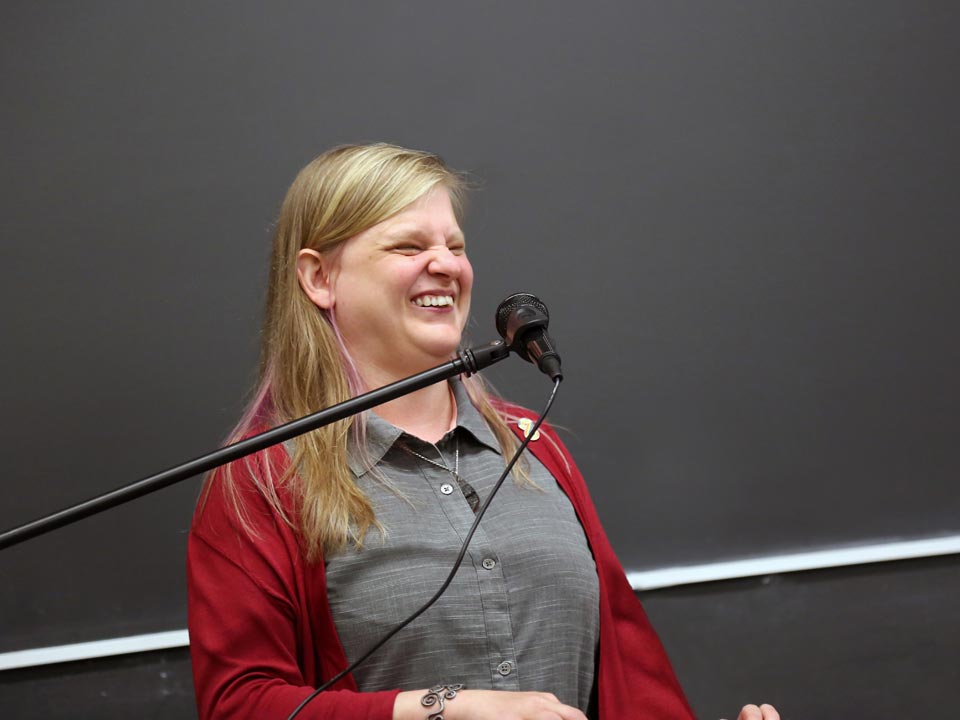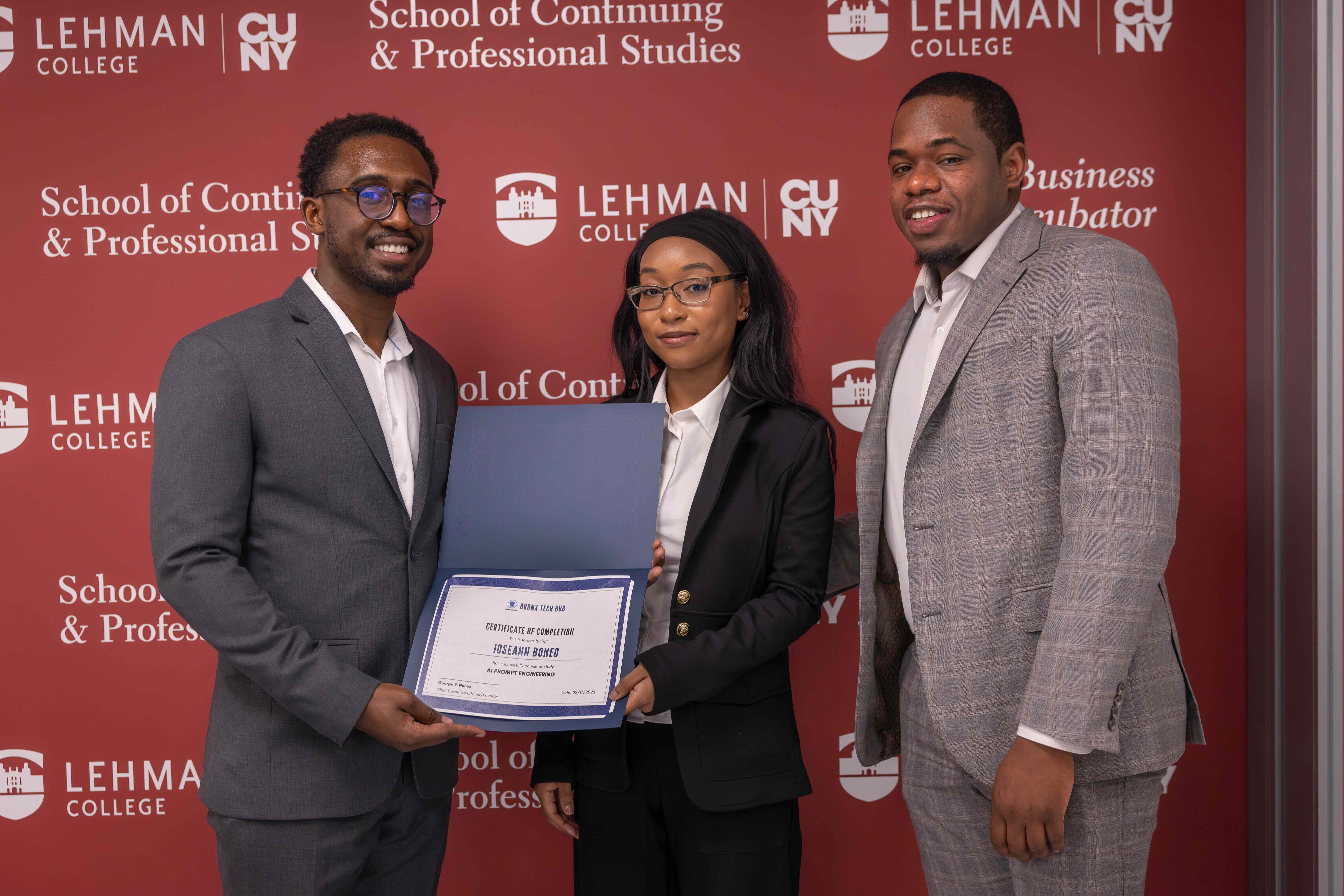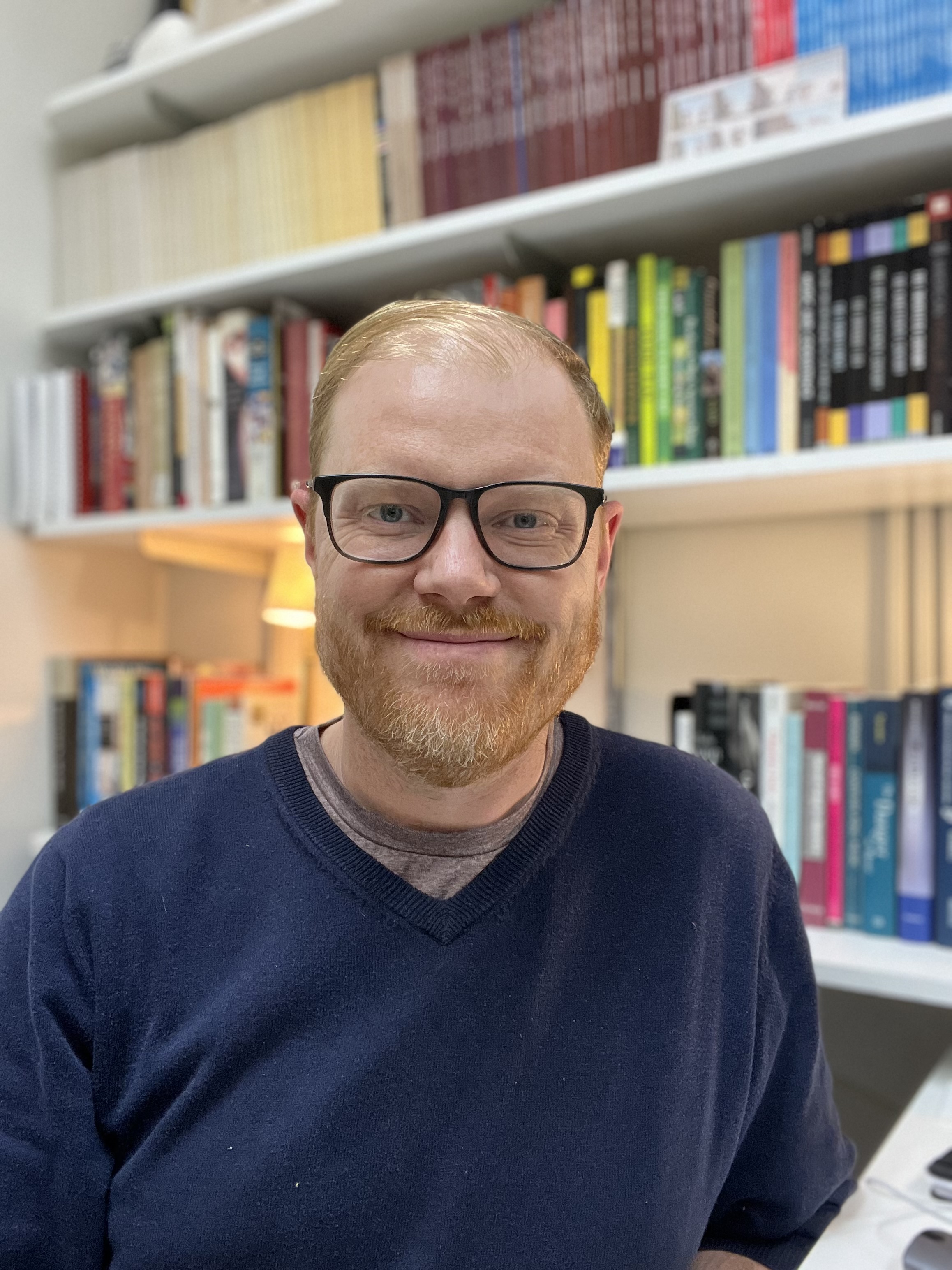- Lehman College >
- News >
- 2019 >
- Accessibility Advocate Examines Tech Tools for the Blind in Lecture at Lehman
News
Search All News
Thursday, March 5, 2026
CONTACT
Office Hours
Monday - Friday 9am - 5pmClosed Sat. and Sun.
RELATED STORIES
March 2, 2026
Accessibility Advocate Examines Tech Tools for the Blind in Lecture at Lehman

Accessibility Advocate Examines Tech Tools for the Blind in Lecture at Lehman
May 9, 2019
Digital and technological advances have improved work environments for the blind and visually impaired community, but those advances have some drawbacks, explained accessibility advocate Chancey Fleet in the annual Lehman College Disability Studies lecture.
Fleet, who coordinates the technology education programs at the New York Public Library’s Andrew Heiskell Braille and Talking Book Library, drew on her experiences as a blind person and adaptive technology instructor for her lecture, which was titled "De-Visualizing Technologies: The Joys and Friction of Blindness in the Digital Commons."
"Being blind in the digital world is never just OK," Fleet said. "You are always experiencing a state of extremes. You'll work with a new technological tool you’ve never used before and feel like celebrating, but then inside that new digital space there will be a lack of accessibility that will slow you down."
A Braille user since she was in first grade, Fleet was later experienced the technologically liberating access to information with a screen reader that turned text to speech.
And while writing in Braille contributed to her fine motor dexterity, Fleet noted, using voice assisted tech devices allowed her to freely dictate her work, capture ideas in the moment, and play them back at a another time. But some voiced words are not properly understood by the devices, and so there is a problem with accuracy when the work is turned into text. Privacy is also a concern since the data on the devices is stored and tracked, she added.
Fleet's work keeps her on the cutting edge of digital tools. A 2017 Library Journal Mover and Shaker and the recipient of a Data & Society Research Institute fellowship this past year, she has been working with visually impaired community members to create accessible tactile maps.
"The profound and sudden shifts in the technological landscape keeps us flexible," Fleet said. "There is also a well-documented skepticism about what tech is doing for us—and doing to us. I feel a sense of hope, though. We keep creating new tools and achieving new firsts."
Some of the digital tools that Fleet mentioned in her talk are available to visually impaired Lehman students at the Office of Student Disability Services' Access and Technology Center in Leonard Lief Library. These include ZoomText, a screen magnification and reading software, plus read-aloud, text-to-speech programs like Kurzweil 3000, Job Access with Speech, and Read & Write Gold.
All of the computers at the Access and Technology Center are equipped with assistive technology software, and eligible students receive one-on-one training. According to Pedro Laureano, the center's manager, about 25 visually impaired students regularly visit the office to work on their studies.









